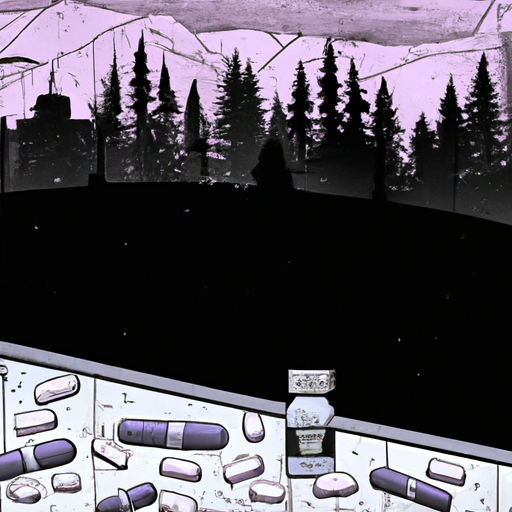The Effects of the Opioid Crisis in Canada: A Closer Look at British Columbia
It is with a heavy heart that we report on the escalating opioid crisis in Canada that continues to claim lives at an alarming rate. A recent piece in the Vernon Morning Star reported that toxic drugs claimed 192 lives in British Columbia alone in the month of July.
Dire Consequences: ThePandemic Within a Pandemic
The situation has been exacerbated in the past year due to the COVID-19 pandemic, amplifying the existing challenges faced by those struggling with addiction. Acting Provincial Health Officer Dr. Reka Gustafson reported that the toxicity of the drug supply continues to rise, contributing to the increased mortality rate.
The Societal Impact
While the personal consequences are immeasurable, the opioid crisis is also connected with numerous societal issues, including homelessness and crime in Canada. People affected by addiction often suffer from unstable living conditions, contributing to the homeless crisis. Simultaneously, crime rates can increase as individuals facing addiction may resort to illegal activities to obtain drugs or support their habit.
Efforts to Alleviate the Crisis
Solutions are complex, requiring multi-faceted, responsive approaches that address the urgent need for safe, controlled drug supplies. Access to Naloxone— a medication designed to rapidly reverse opioid overdose— is one of the significant resources made available by Canadian jurisdictions. Key measures enacted include:
- Expansion of Naloxone distribution
- Inclusion of pharmacological therapies in addiction treatment modalities
- Innovative programs, such as the prescription of safe, controlled opioid alternatives to combat the toxic, illicit drug supply issue
- Increased public awareness campaigns
Legal Recourse: The Canadian Opioid Abatement Class Action
At the legal level, the Canadian opioid abatement class action lawsuit against pharmaceutical companies producing opioids seeks accountability for their role in the crisis. It represents Canadians affected by prescribed opioids, bolstering the collective struggle for justice.
A Cry for Collective Action
Progress contending with the opioid crisis is undeniably slow, with the number of lives lost continually rising. Therefore, it behoves everyone— civic and community leaders as well as ordinary citizens— to heed this urgent call to action.
Sensible drug policy, adequate funding for rehabilitation and recovery programs, comprehensive addiction support systems, and access to affordable, safe housing can play a crucial role in addressing the crisis. Awareness, empathy, and proactive involvement are key in this collectively challenging this calamity.
Key Points Summarized:
- Opioid crisis in Canada continues to escalate, with toxic drugs claiming 192 lives in British Columbia alone in July
- The COVID-19 pandemic has compounded the existing challenges faced by people with addictions
- The societal effects of the opioid crisis include increased rates of homelessness and crime
- Multi-faceted approaches are necessary, including access to Naloxone, safe, controlled drug supplies, and awareness campaigns
- Legal measures, such as the Canadian opioid abatement class action lawsuit, seek accountability from opioid producing pharmaceutical companies
In conclusion, the escalation of the opioid crisis in Canada demands our immediate attention and concerted action to save lives. This crisis touches all segments of our community and requires a multifaceted approach towards solutions, encompassing legal actions, medical treatments, societal support systems, and compassionate understanding. Perhaps most importantly, it underscores the paramount need for collective action, a responsibility we all share in addressing the ongoing crisis. Let’s pledge to remain informed, involved, and positively contribute to the combating of the opioid crisis.
